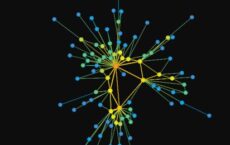
This blog celebrates publication of Facing death across cultures, a book four years in the making, begun as the pandemic first erupted. Inspiration for the book germinated two decades ago, when I was composing music for a documentary about Mitsuo Aoki, who founded the Department of Religion at the University of Hawaiʻi at Mānoa and […]
Read MoreWhen I was a little girl, bullied by my peers and misunderstood by my teachers, I couldn’t wait to be a grown-up. I dreamed of my future life as a professor, filling my brain with facts and my shelves with books. In my ivory tower, I would be surrounded by peers who shared my love […]
Read MoreI got my first mobile phone when I was 18 years old. Internet at my time still made this annoying sound trying to connect from the phoneline, that somebody else needed every time you were doing something very very but very important for 16-year-old me at the time. Technology has evolved incredibly rapidly since, research […]
Read MorePeople will always do what they want to do. Right? Well, not exactly. We can easily think about situations in which we tried to change someone else’s mind: begging parents for a toy, asking a reluctant friend to come to a dinner party, or making a case for your boss to grant you a few […]
Read MoreWhy do we see the behaviors that we do in the world? This question has challenged many notable thinkers, including Darwin, Saussure, Wittgenstein, Lévi-Strauss, Durkheim, and many other past and recent thinkers. Their conclusions identified how things in the world – from species to thoughts to culture – rely on the interconnectivity of the systems […]
Read More“It’s 10 O’clock – do you know where your children are?” This question was widely posed to parents in public service announcements broadcast on the radio and TV and posted on billboards in the US from the 1960s to the 1990s. These public service announcements were based on scientific research on parental monitoring—parents’ behaviors aimed […]
Read MoreIn one of my favourite books by Haruki Miyazaki, Killing Commendatore, the protagonist emphasises that "if you want something with all your heart, you can achieve it". I completely identify with this statement.
Read More“… I’m afraid there’s not a snowball’s chance in hell that Africa will make it. I know because I served in Nigeria. It’s their culture, you know [emphasis added]. It will not allow them to create a modern society. Ever, EVER” (Rosling et al., 2018, p. 167). This comment was made by a European investor […]
Read MoreThis blog celebrates publication of Facing death across cultures, a book four years in the making, begun as the pandemic first erupted. Inspiration for the book germinated two decades ago, when I was composing music for a documentary about Mitsuo Aoki, who founded the Department of Religion at the University of Hawaiʻi at Mānoa and […]
Read MoreWhen I was a little girl, bullied by my peers and misunderstood by my teachers, I couldn’t wait to be a grown-up. I dreamed of my future life as a professor, filling my brain with facts and my shelves with books. In my ivory tower, I would be surrounded by peers who shared my love […]
Read MoreI got my first mobile phone when I was 18 years old. Internet at my time still made this annoying sound trying to connect from the phoneline, that somebody else needed every time you were doing something very very but very important for 16-year-old me at the time. Technology has evolved incredibly rapidly since, research […]
Read MorePeople will always do what they want to do. Right? Well, not exactly. We can easily think about situations in which we tried to change someone else’s mind: begging parents for a toy, asking a reluctant friend to come to a dinner party, or making a case for your boss to grant you a few […]
Read MoreWhy do we see the behaviors that we do in the world? This question has challenged many notable thinkers, including Darwin, Saussure, Wittgenstein, Lévi-Strauss, Durkheim, and many other past and recent thinkers. Their conclusions identified how things in the world – from species to thoughts to culture – rely on the interconnectivity of the systems […]
Read More“It’s 10 O’clock – do you know where your children are?” This question was widely posed to parents in public service announcements broadcast on the radio and TV and posted on billboards in the US from the 1960s to the 1990s. These public service announcements were based on scientific research on parental monitoring—parents’ behaviors aimed […]
Read MoreIn one of my favourite books by Haruki Miyazaki, Killing Commendatore, the protagonist emphasises that "if you want something with all your heart, you can achieve it". I completely identify with this statement.
Read More“… I’m afraid there’s not a snowball’s chance in hell that Africa will make it. I know because I served in Nigeria. It’s their culture, you know [emphasis added]. It will not allow them to create a modern society. Ever, EVER” (Rosling et al., 2018, p. 167). This comment was made by a European investor […]
Read MoreKeep up with the latest from Cambridge University Press on our social media accounts.
University of California, Los Angeles
Susan Wolfe and Associates, LLC
North Carolina State University
Carter is Charles Howard Candler Professor of Psychology and interim Dean at Oxford College of Emory University, and the author of Psychopathology and Buzz!.
Leicestershire Partnership NHS Trust
University of Edinburgh
Hertfordshire Partnership University NHS Foundation Trust
Independent Pharmacy Consultant
Leicestershire Partnership NHS Trust
University of California, Los Angeles
University of Warwick
University of Wroclaw, Poland
University of Tokyo
University of Wollongong, New South Wales
University of Rochester, New York
University of Missouri, Columbia
University of Hawaii
The Joy of Science
Charlotte H. Markey, Ph.D., is a Psychology Professor and Director of the Health Sciences program at Rutgers University, New Jersey.
Elizabeth A. Daniels, Ph.D., is an Assistant Professor of Psychology at the University of Colorado, Colorado Springs.
Meghan M. Gillen, Ph.D., is an Associate Professor of Psychology at Pennsylvania State University, Abington.
Order on the Edge of Chaos
Order on the Edge of Chaos
Order on the Edge of Chaos
The Joy of Science
The Reader\\\\\\\\\\\\\\\'s Brain
Constructive Controversy
Clinical Perspectives on Autobiographical Memory
Cognition: A Neuroscience Approach
The Psychology of Creative Writing
Psychology of the Digital Age
Colours and Colour Vision
Author of The Late Sigmund Freud
Philip T. Yanos, Ph.D., is Professor of Psychology at John Jay College, City University of New York.
Michael Filimowicz is a multi-disciplinary artist and researcher working at the overlapping boundaries of media forms.
Merim Bilalić is the author of The Neuroscience of Expertise
Stanley O. Gaines, Jr. (Brunel University London) is the author of Personality and Close Relationship Processes.
David R. Olsen is University Professor Emeritus at the University of Toronto and the author of The Mind on Paper.
Dr. Fiona Kate Barlow is a social psychologist specialising in the study of race relations.
R. Keith Sawyer is a co-editor of Reflections on the Learning Sciences
Michael A. Evans is a co-editor of Reflections on the Learning Sciences
Martin J. Packer is a co-editor of Reflections on the Learning Sciences
Cognitive Neuroscience of Memory
Statistics Using Stata
Statistics Using Stata
Social Development as Preference Management
Why Life Speeds Up As You Get Older
The Normal Personality
Benign Bigotry
Animal Homosexuality
The Mind of Jihad
On Scandal
I Was Wrong
The Deepening Darkness
Patriarchal Religion, Sexuality, and Gender
Library marketing associate
Publicist
The Myth of the Ethical Consumer
The Myth of the Ethical Consumer
The Myth of the Ethical Consumer
Confronting Cyber-Bullying
Extraordinary Beliefs
Inez De Florio author of Effective Teaching and Successful Learning.
Does Your Family Make You Smarter?
The Anthropology of Childhood
Early Social Interaction
Hoax Spring Eternal
Ethical Challenges in the Behavioral and Brain Sciences
Ethical Challenges in the Behavioral and Brain Sciences
Cybercrime: The Psychology of Online Offenders
Cybercrime: The Psychology of Online Offenders
Beyond Belief
To receive updates on Psychology news from Cambridge University Press and Fifteen Eighty Four, please join our email list below. We will not disclose your email address to any third party









